
- Religious, nationalist or fundamentalist? The Rashtriya Swayamsevak Sangh has come to acquire many connotations but how much do you know about their philanthropic side?
- What was the RSS doing when the earthquake shook Gujarat and floods drowned Uttarakhand?
- What is the right-wing outfit doing in J&K\'s militancy hit areas? Read on to find out!
Here's the funny thing about politics - whether it is obvious or you are oblivious, it is always there.
The Rashtriya Swayamsevak Sangh, while refusing to identify itself as a political outfit, has become one in the mainstream media thanks to its influence and outreach. However, its top leaders have projected/rejected that status explicitly; referring to it as a social movement instead.
While the right-wing group receives flak for being either regressively conservative or nationalistically radical or religiously fundamental, here are some points to ponder upon before you hop onto the right-wing bashing bandwagon.
The largest NGO
Yes, you read that right. The RSS has the most extensive network of volunteers and NGOs in India and possibly, in the world too! Present in over 50,000 towns and cities in India, few organisations have an outreach to match the Sangh.
The shakha is the most fundamental unit of the Sangh's structure and according to a TOI report, the last five years have seen "29 per cent increase in daily shakhas, 61 per cent increase in weekly shakhas and 40 per cent growth in monthly shakhas" pan India.
While this may alarm some, accounts of what many have witnessed at shakhas are anything but. Firstly, shakhas have no formal system of registration or membership fees. If you attend the meeting, you're a part of the family. With class segregation absent, everyone is made to sit together on the ground.
Further, a majority of their shakhas are in rural areas. According to an interview by RSS's Jaipur prant Sanghachalak Ramesh Agrawal to the Indian Express, the RSS has shakhas in 90 per cent of roughly 6,100 tehsils in India, that involve communities into collective exercises and education.
Educating the marginalised
Riddle me this - which is a fundamental right in theory and luxury in practice? And while the answer could be 'all of them', we are talking about education.
Now, everyone knows about the physical as well as cultural marginalisation of the tribal folk. Their welfare and access to bare necessities, as and when convenient, becomes a talking point for politicians and their parties.
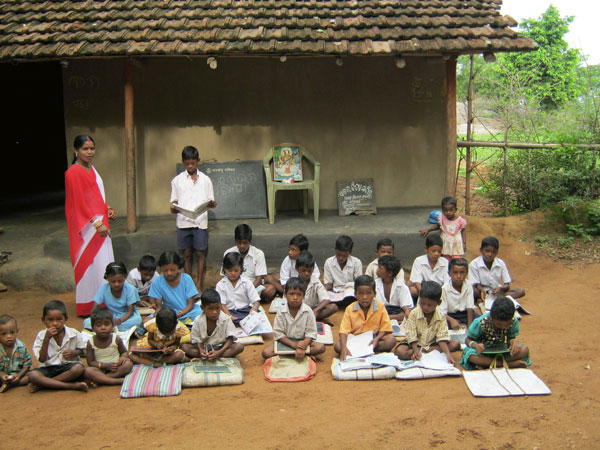
bharatabharati.wordpress.com
However, the RSS has been running over 27,000 Ekal vidyalayas in remote tribal areas for 26 years now. These schools enroll close to 8 lakh tribal children. Their aim is to bring social reform through education - even if it implies that the education is indoctrinated with Hindutva ideology, which to them actually means 'cultural nationalism' rather than religious fundamentalism as it has come to be construed.
When disaster strikes, everyone is equal
One of the RSS' trademark principles is that of 'selfless service to the nation.' And while its definition has come to be hotly debated, their volunteer and rescue efforts during natural and man-made disasters are a case in point.
The RSS has been involved with massive relief work through the years - from the Partition when the RSS set up 3,000 camps for Pakistani refugees to the 2013 Uttarakhand floods when the RSS cadres were extremely proactive in providing relief, food and support to the victims.
They were involved in rehabilitation and relief efforts in 2004 when Tamil Nadu was hit by the tsunami, during the 2001 Gujarat earthquake and even when riots broke out in Assam over Bangladeshi illegal migrants in 2012.
Foster care that fosters hope
When was the last time you saw a news app notification for a ceasefire violation in Jammu and Kashmir and batted an eyelid? Ground reality differs from news updates and for generations that have grown up amongst curfews and unrest, that is exactly what makes all the difference.
Meanwhile, the Seva Bharati wing of the RSS has been doing something commendable work in Jammu & Kashmir. They have rehabilitated and educated hundreds of children - regardless of their religion - from militancy affected areas. The organisation even arranges their accommodation if needed and many are sent to study in boarding schools in Delhi.
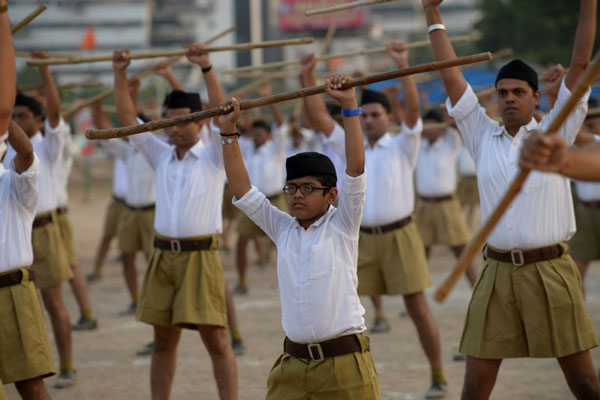
AFP PHOTO / Sam PANTHAKY
Seva Bharati also has programs for rehabibilitation of the disabled and conducts health camps and awareness drives across India.
Now, this is not supposed to make you pro-RSS all of sudden but how's that for some food for thought?
First published: 10 December 2015, 4:59 IST

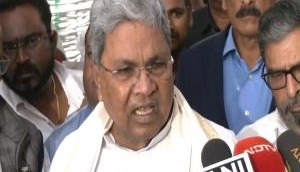
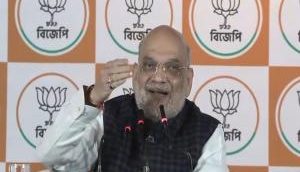
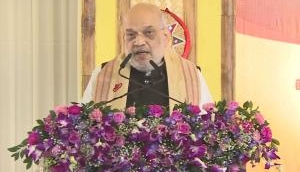
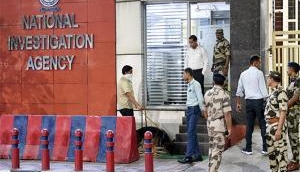
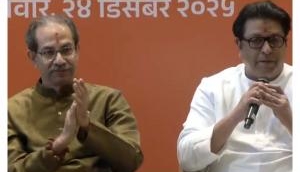
![BJP's Kapil Mishra recreates Shankar Mahadevan’s ‘Breathless’ song to highlight Delhi pollution [WATCH] BJP's Kapil Mishra recreates Shankar Mahadevan’s ‘Breathless’ song to highlight Delhi pollution [WATCH]](https://images.catchnews.com/upload/2022/11/03/kapil-mishra_240884_300x172.png)

![Anupam Kher shares pictures of his toned body on 67th birthday [MUST SEE] Anupam Kher shares pictures of his toned body on 67th birthday [MUST SEE]](https://images.catchnews.com/upload/2022/03/07/Anupam_kher_231145_300x172.jpg)






